Kick-off
Participation is free.
Click here for prior registration to be able to interact with presenters
Live broadcasting, with no need for prior registration, on the YouTube U.Porto channel.
GMT+1
June 7th
9:00
Warm-up
NEB Intro
European Commission, I.D.E.A. Advisory Board to the
President, Green Deal & New European Bauhaus
10:15
Talk
Álvaro Siza on Bauhaus. The impact of Bauhaus at Porto School
Architect, curator of the exhibition “Siza – Unseen & Unknown”
10:45
Virtual Coffee Break
11:00
Keynote
How to co-design the New European Bauhaus - Experience from the Nordic countries
Senior Specialist at the Ministry of the Environment of Finland
11:30
Lunch Break
13:30
Roundtable 1
Bauhaus introduced the concepts of design and innovation in an interdisciplinary framework combining art and technology. These ideas were key to consider aesthetics together with functionality and affordability in a time of profound transformation due to industrialization.
How can Bauhaus legacy help us to establish major changes to respond to the European Green Deal?
Moderator: Fátima Vieira, University of Porto, Vice-rector of University of Porto
EXPERTS: Carlos Machado (PT), Álvaro Terrones (ES), Andrea Urlberger (FR), Antonio Esposito (IT), Bojan Baletić (HR), Panayotis Tournikiotis (EL)
STUDENTS: Beatriz Rosendo (PT), Vicent Gaspar Herrera (ES), Natacha Issot (FR), Federica Lecci (IT), Rea Novaković Matošić (HR), Elina Varouxaki (EL)
15:00
Virtual Coffee Break
15:15
Roundtable 2
The New European Bauhaus unites us around a major objective that compels us to improve the environmental quality of our continent and thereby contribute to a better future of the world.
How to respond considering universal principles but also solutions adapted to each regional reality?
Moderator: José Pedro Sousa, NEB HLRT / University of Porto, Faculty of Architecture
EXPERTS: Teresa Calix (PT), Débora Domingo-Calabuig (ES), Rémi Papillault (FR), Francesco Saverio Fera (IT), Mia Roth-Čerina (HR), Riva Lava (EL)
STUDENTS: Adrian Krężlik (PT), Juan Gómez Verdú (ES), Maureen Certain (FR), Giorgia Verlicchi (IT), Ivona Lovrić (HR), Charis Trementousiotis (EL)
16:45
Virtual Coffee Break
17:00
Conclusion
Fátima Vieira, University of Porto, Vice-rector of University of Porto
José Pedro Sousa, NEB HLRT / University of Porto, Faculty of Architecture
Manuel Heitor, Minister of Science, Technology and Higher Education
17:30
Closing

António de Sousa Pereira is Rector of the University of Porto since 2018, after serving for 14 years as Dean of the Biomedical Sciences school, he has dedicated his entire career to the practice and teaching of Medicine.
Physician and Full Professor of Anatomy before being elected Rector, he was a member of several national and international bodies in the field of Health and Life Sciences, having chaired the National Council for Medical Education and Education of the Portuguese Medical Association.
In 2020, its peers elected António Sousa Pereira as president of the Council of Rectors, the coordinating body of the Portuguese universities and the national representative in the Council of the European University Association.

Elisa Ferreira is the European Commissioner for Cohesion and Reforms, since December, 2020. Holds a Degree in Economy from University of Porto, 1978, a Master’s Degree, from 1981, and a PhD, 1985, from University of Reading, UK. She is a professor of the University of Porto, on leave of absence.
Member of the Board at Banco de Portugal, from June, 2016, until September, 2017, she was Vice Governor from September, 2017, until December, 2019. She represented Portugal in the Supervisory Board of the Single Supervisory Mechanism from June, 2016, until December, 2019.
Member of the European Parliament, between 2004-2016, and Member of the Portuguese Parliament, 2002-2004, she was also Minister of Planning, 1999-2002, and Minister for the Environment, from 1995 until 1999. She held the position of Executive Vice-President of the Porto Industrial Association, between 1992 and 1994, and assumed the vice-presidency of Portugal’s Northern Region Coordination Commission, from 1988 until 1992.
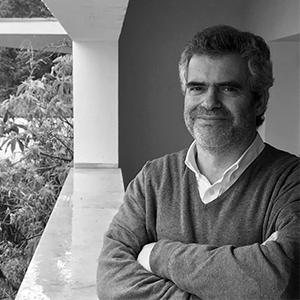
João Pedro Xavier is an architect and full professor at the Faculty of Architecture, University of Porto (FAUP), where he received his degree in 1985, and his Ph.D. in Architecture in 2005.
He worked in Álvaro Siza’s office from 1986 to 1999. At the same time, he established his own practice as an architect.
Xavier is a member of CEAU’s research teams – Architecture: Theory, Project, History (ATPH) – and – Digital Fabrication Laboratory (DFL). The relationship between architecture and mathematics, especially perspective, is his main research interest. He is the author of the books Perspectiva, perspectiva acelerada econtraperspectiva (Perspective, accelerated perspective and retarded perspective) and Sobre as origens da perspectiva em Portugal (About the origins of perspective in Portugal).
He is correspondent editor of the “Nexus Network Journal”, and member of the “European Association for Architectural Education” (EAAE) Council.

Ruth Reichstein works in I.D.E.A., the Advisory Board of the President of the European Commission, Ursula von der Leyen. She deals with Green Deal related issues and coordinates the New European Bauhaus initiative. Ruth is a trained journalist and occupied several positions before joining the Commission beginning of 2019; both as communicator in the European Parliament and as journalist for several German news outlets such as “die tageszeitung”, “ARD” and “Deutschlandfunk”.

António Choupina is an architect, from the Faculty of Architecture of the University of Porto, who founded the atelier CH.A (CHoupina.Architects) while collaborating with the School of Arts & Design. He is responsible for interventions at the Palace of Charles V and at the Sverre Fehn Pavilion, for the Presidential Visit to Norway. He managed the construction of Álvaro Siza’s pavilion at China’s International Furniture Fair, with whom he has developed multiple cultural projects, in partnership with Aedes Berlin, Vitra and the Aga Khan Network. Among others, he has curated exhibitions at the Serralves Museum, Nadir Afonso Museum, Alfaro Foundation, Tchoban Foundation, Marques da Silva Foundation and Tsinghua Art Museum, producing various publications on the frontier of architecture, art and philosophy. He is editor at AAs Architecture, jury of international awards and guest speaker of several institutions and events, such as the Bauhaus100 or the International Architecture Design Forum.

Matti Kuittinen works as a Senior Specialist at the Ministry of the Environment of Finland. He is developing national policies for low carbon and circular construction. Kuittinen also teaches sustainable architecture at Aalto University as an Adjunct Professor.
Roundtable 1
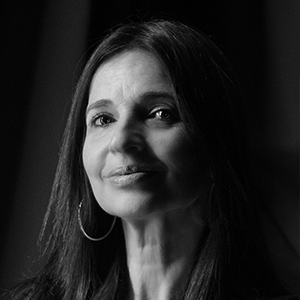
Fátima Vieira is Vice-Rector for Culture of the University of Porto and Associate Professor (with “Agregação”) at the Faculty of Arts and Humanities. She was the Chair of the Utopian Studies Society / Europe from 2006 to 2016, and the recipient of the Larry E. Hough Distinguished Service Award of the American and Canadian Society for Utopian Studies. She is the Coordinator of the Porto University’s branch of CETAPS – the Centre for English, Translation and Anglo-Portuguese Studies, where she is the leader of the research project “Mapping Utopianisms”.
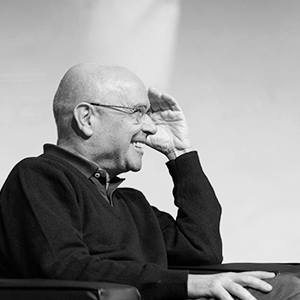
Carlos Machado (Porto, 1956) studied architecture at the Porto School of Fine Arts, where he was a pupil of Fernando Távora and Álvaro Siza. He had his degree in architecture in 1987. He began teaching in the Faculty of Architecture of the University of Porto in 1988 and completed his PhD in 2006 with a thesis about contemporary Portuguese architecture.
He has been working as an independent architect since 1983 and worked at Eduardo Souto de Moura’s office between 1990 and 1991.
He published several articles in national and international magazines, catalogues and monographs. He participated in Congresses and Meetings about architecture and architectural photography. He was one of the organizers of the conferences “Discursos de Arquitectura” (“Architectural Discourses”) that took place in Porto in 1991.
He is presently teaching Contemporary Architectural History and Contemporary Architectural Theory and Investigation Methodologies (Integrated Master and PhD Courses) at the Faculty of Architecture of the University of Porto, where he also develops research at the Center for Studies in Architecture and Urbanism.
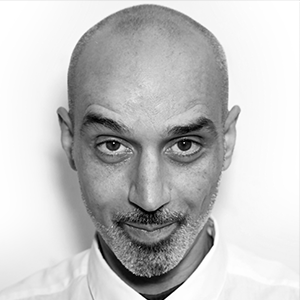
Álvaro Terrones Reigada (Castellón, Spain, 1980). Ph.D. in Fine Arts, professor of the subject of performance art, Polytechnic University of València, Spain.
B.A in Graphic Design -journalism agreement- (ESADC Castelló). B.A. in Fine Arts, UPV. Postgraduate Studies Malerei-Grafik (Burg Kunsthochschule, Halle); Master Studies in art production (UPV). Participates in international performance art meetings: RIAP Quebec, Art Nomade Montreal, Perform. Art Bergen, Perform. Art Oslo, Mother’s Tongue Helsinki, Perform. art Meeting Kassel… Holds various international research stays: Lithography Leipzig Center, Le Lieu Editorial Center Quebec, Black Kit performance Archive, Koln. Of his Ph.D. thesis, on theory and operability of performance art, have group exhibitions: the Museum MUSAC in Leon or Carmen Contemporary Culture Center València.
In his artwork, the concept of time, the operational and finite concepts are a constant theme, working in performance art as an interdisciplinary and polytechnic process in which there are a series of relationships between the artist and the artistic object.
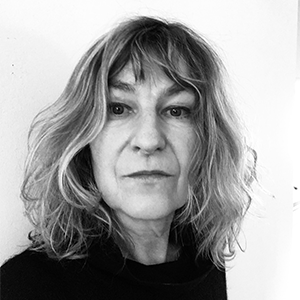
Andrea Urlberger is a professor at École Nationale Supérieure d’Architecture of Toulouse, and a researcher at LRA. She is an art theorist, graduated from the University Paris 8 and holds a PhD in aesthetic, art sciences and techniques. In 1995, she began working in the field of digital art and urban space. Her doctoral thesis (2001) focused on the transformation of cities and on digital art, mobility and geolocation. Her research habilitation (2016) focused on the convergence of design (Otl Aicher and the Hochschule für Gestaltung Ulm) and architecture (Günter Behnisch and Frei Otto) in the olympic complex of Munich, and political changes in 1972. She has directed and co-directed several research programs. She worked on the Bauhaus and organized a symposium in Toulouse to celebrate the 100th year of the Bauhaus. Her main publications are Parcours artistiques et virtualités urbaines (2003), Habiter les aéroports (2012), 1972, Arts, territoires et terrorisme (2018).
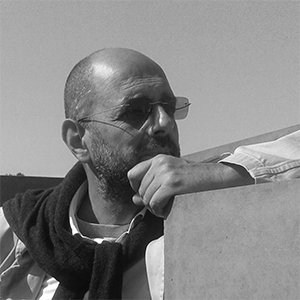
Antonio Esposito (Rome, 1961) distributes his commitment between design, teaching and research. He has produced and published several studies on Portuguese contemporary architecture, a reality with which he has forged a relationship of cultural confrontation for more than thirty years. His other research and studies on cities and on the state of contemporary architecture have produced numerous writings and essays. Several of his projects have been exhibited in collective exhibitions or published in Italian and foreign magazines and collections. These include the Caramanna house, the De Nigris house, the Bicentenary square in Mexico City and two competitions in Bari, both winners of the second prize. He has lectured on his work and on various topics of modern and contemporary architecture. Since 2011, he is a professor of architectural and urban composition in Cesena and Bologna where he coordinates a Degree Laboratory by orienting design theses concerning various Italian and foreign cities. Previously he taught at several Italian faculties as a contract professor.
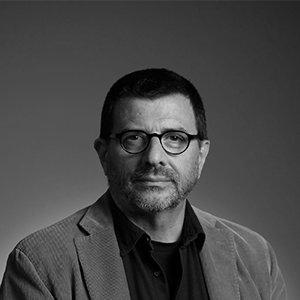
Bojan Baletić is a full professor at the Digital Design Technologies Unit in the Faculty of Architecture of the University of Zagreb. From 2020, he is the Dean of the Faculty of Architecture.
In 1989, he established the CAD Forum conference in Zagreb, and a year later the MediaScape international conference. He served twice as the vice dean and was responsible for the curricula reform. From 2005, he was a member of the workgroup for architectural education at the Architectural Council of Europe. He was also a member of the workgroup for education and a member of the workgroup for international relations at the Croatian Chamber of Architects. He is a member of the Croatian Academy of Engineering and a member of several professional associations. In 2018, he was presented the national annual award for scientific research.
From 2006 to 2014, he served as vice rector for master planning and inter-institutional cooperation at the University of Zagreb. He is the author of the University master plan and was responsible for the development of the new campus areas. At the time he edited the “University and the City” book edition.
He was a working group coordinator in the International Sustainable Campus Network, in 2011. He has been a member of the UNICA Green core group since 2014. He serves as a member of the City of Zagreb Partnership Council.

Panayotis Tournikiotis is the professor of architectural theory and Dean at the National Technical University of Athens, School of Architecture. He has studied architecture, town planning, geography and philosophy in Athens and Paris. His research focuses on critical history and theory, and the way understanding the past may contribute to the interdisciplinary setting of design strategies in architecture and town planning. He has authored and edited many books including Adolf Loos, The Parthenon and its Impact in Modern Times, The Historiography of Modern Architecture, Architecture in Modern Times, and The diagonal of Le Corbusier. He has been active as a curator in architectural events and he contributes on the board of many institutions. His recent work explores the reinvention of the city centre in metropolitan Athens.
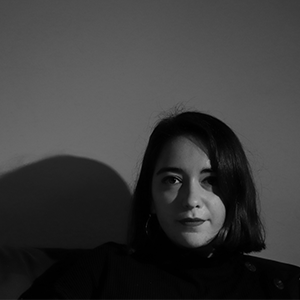
Beatriz Rosendo is 23 years old and she is currently a fifth year student of the Integrated Master in Architecture at FAUP, developing her master dissertation on Architecture and Artificial Intelligence with Professor José Pedro Sousa.
She is the President of the Students Association of FAUP [AEFAUP], where she represents roughly 1100 students and coordinates a team of 56. In 2019, AEFAUP won the prize “Boas Práticas de Associativismo Estudantil/ Best Practices in Student Associations” by IPDJ (Portuguese Institute of Sports and Youth) with the annual publication of “Revista MA” – Compor.
She works as an intern at Miguel Barbosa Architects and she has been a freelance photographer (both digital and analogue) since 2017. She also has a scenography work done for the Project SupraHuman, in 2018. Previously, in the years as a Senior Tumbling Gymnast, she achieved 2nd place at the nationals in 2015. She also graduated from the Music Conservatory of Coimbra, and participated in concerts at the FEUP Orchestra.

Vicent Barrera Gaspar is a multidisciplinary artist who currently resides in Valencia. He was born in Valencia, on 18th February, 1995 and grew up in Benifairó de les Valls. At the age of 18, he moved to the city of Valencia to study a degree in Aerospace Engineering at the Polytechnic University of Valencia. In the fourth year of his career, he studied a semester in Milan at the Politecnico di Milano, thanks to an Erasmus + scholarship. During this stay abroad, thanks to the new stimuli received, he understood that his true vocation was art. After graduating as an engineer and working for a year, he began his studies in Fine Arts at Polytechnic University of Valencia. During his studies, he developed his work through contemporary and interdisciplinary art. In parallel, he began to carry out graphic design commissions and to collaborate with the members of the OLDBALANCE label in the creation of musical works. Vicent’s work revolves around sculpture, photography, sound, space and the body. His voice deals with topics such as mental disorders, selfawareness, playing as a form of lucidity and affections. His interest in art, both plastic and musical or graphic, has grown gradually since childhood, to the point of professionalizing his life based on this vocation. He has worked on promotional videos and numerous graphic works, has been publishing in artistic and academic publications and collaborated on musical works distributed by multinationals such as Warner Music.

Natacha Issot, student in her first year of PhD at the architectural research laboratory in Toulouse (LRA). After two years of Master on the « heritage » thematics, her thesis questions the 20th Century heritage, particularly the recognition of use value in the heritage development process, in large housing estates in France. Her thesis deals with different notions about this particular heritage, such as recognition, protection, or valorization.

Federica Lecci is a student of Architecture at the University Alma Mater Studiorum of Bologna, Campus of Cesena. The university courses that impacted the most her vision of architecture are: aesthetics, theory of history and restoration, urban planning laboratory and architectural design laboratory IV. She had also participated in many external courses like: Course of Architecture, design, and urbanism “Designing with empathy”; Course of 3D printing press 4m group; Architectural Workshop “LURT” (Laboratorio Umano di Rigenerazione Territoriale) instructor: Flora La Sita and Orizzontale studio, location: Riesi, Sicily. Now she is training at the international studio “DECISIO” in Amsterdam.
She is passionate about urban planning with a multidisciplinary approach and is interested in every form of art that seeks to contribute to the construction of a more equitable world. Other skills: scout educator, dancer and ex competitive skater. She is able to speak Italian, English and Spanish.
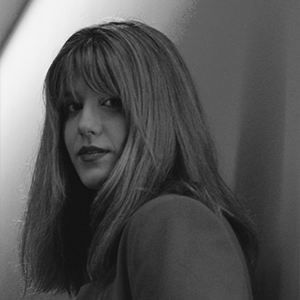
Rea Novaković Matošić is a Bachelor student of architecture and urbanism at the University of Zagreb, Faculty of Architecture. From 2017 to 2019 she was an informal member of the Student body, Faculty of Architecture, and, since 2019, she is vice president of the Student body. She takes part in the DA! festival organization team in 2020/2021, a student project that took place in January, 2021, in its 6th edition. The project connects architecture, design and art through lectures, workshops and a student exhibition.

Elina Varouxaki is currently working in an architecture practice in Athens after graduating NTUA school of Architecture and studied a semester in the Bauhaus-Universität Weimar, participating in the development of the urban ring of Leipzig. She has curated performances, radio shows exploring the urban public space and participated in a wide range of design projects, individually and in collaboration, spanning from furniture pieces to renovation of preserved buildings while in each project experimenting with a range of different materials. She finds interest in the housing problem as posed in different eras in Europe and investigated this in her thesis Realistic Utopie, exploring how absent elements of co-housing can be transcribed in the Athenian context. The theoretical research extends to findings of undiscovered essays of 1960s Greek architect D.Pikionis in a Medieval fortress in Rethymno, published both online and in paper investigating how the tourist narrative is transformed.
Roundtable 2
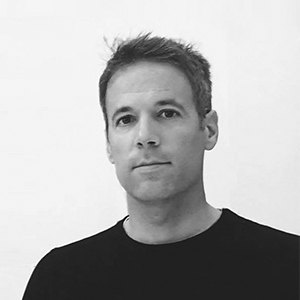
José Pedro Sousa is an Architect by FAUP (Porto), Master in Genetic Architectures by ESARQ-UIC (Barcelona), and a PhD in Architecture by IST-UTL (Lisbon). As part of his research on the application of digital fabrication with cork in architecture, he was a Special Student at MIT (Cambridge, MA) and Visiting Scholar at UPenn (Philadelphia, PA). Since 2009, he has been Assistant Professor at FAUP, where he founded and heads the DFL research group, which is dedicated to explore the digital transformation impact on architectural thinking, design and construction. Before FAUP, he was a professor at FCTUC (Coimbra), ESARQ-UIC (Barcelona) and IAAC (Barcelona). He is currently a member of the High-Level Roundtable of the New European Bauhaus.
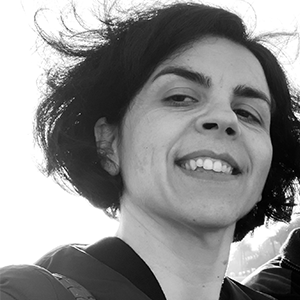
Teresa Calix, PhD, is an architect and assistant professor at FAUP. She is currently the Vice-Dean and the coordinator of the research group “Morphologies and Dynamics of the Territory” at the Centre for Studies in Architecture and Urbanism. She coordinates the Dynamics and Urban Forms Research Line among the PhD Architectural Program. She is also the head of the course “Projecto 5” – urban design studio – and “Urbanística 2 “– urban theory – of the Integrated Master in Architecture.
She has coordinated several applied-research projects and her teaching activities are opportunities to deepen the relationships with institutions as well as with experts of several areas of knowledge that relate to urban and sustainable development. This approach has the ambition to help bridging the gap between students and professionals that will in turn help form actors in the field with a firm commitment to equitable and sustainable development.
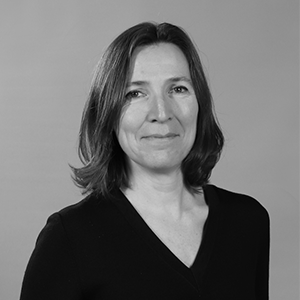
Débora Domingo-Calabuig graduated in architecture after studies in the School of Architecture of Valencia (Spain) and l’École d’Architecture de Paris-La Défense (France). With a specialized degree in Building Construction, she has practised architecture for many years, as an assistant architect, first and then founding her own office. In 2005 she obtained her doctorate at Universitat Politècnica de València.
She is a professor at the Department of Architectural Design since 2000. She held the position of Assistant Director for Research from 2012 to 2016 and was Editor in Chief of the “VLC arquitectura” Research Journal its launch to 2018. She is also a Research Academy member of the EAAE.
Her research focuses on the social consideration in architecture and urban design, particularly in the European post-war contexts of the 60s and 70s and with regard to changes in higher education and new campus planning.
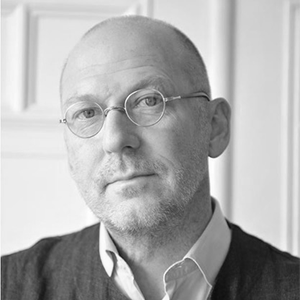
Remi Papillault he’s architect from Paris School of Architecture with specialization on heritage building, PhD on urbanism from Paris Institute of Urbanism, PhD in theories of town planning from EHESS Paris.
As a town planner, he has done projects on heritage site like the Plan of preservation of various historical cities in France like Toulouse, Mirepoix, Lavelanet, Castres, Pierrefonds, and on the historical Toulouse le Mirail from Candilis, Josic, Woods.
As an architect, he has built a Museum of Modern and Contemporary Art in Toulouse, and design many public spaces in various heritage cities.
As a full professor Phd at the Ecole Nationale Supérieure d’Architecture of Toulouse, he teaches in master project and directs the Master Seminar “History and theories of the project.” As a researcher, he has published research and articles mainly on the heritage between city and architecture in the twentieth century, around the project of Léon Jaussely for Barcelona, of Candilis, Josic and Woods for Toulouse Mirail and Le Corbusier for Chandigarh, Índia.
He is the director of the collection « architectures » at the University Press of Midi, France.

Francesco Saverio Fera (Genoa 1962), Master Degree in Architecture at the Politecnico di Milano. As a student, worked in Ignazio Gardella’s office at the architectural competition of the reconstruction of the Opera House Carlo Felice in Genoa (1st prize), project by I. Gardella, A. Rossi and F. Reinhart. From 1987 until 1991 worked in Aldo Rossi’s office in Milano being involved in different projects.
Adjunct Professor (2002) at the Charles E. Daniel Center in Genoa, Clemson University S.C. PhD (2000) at the Architectural School of the University of Genoa. Full professor (2020) in Architectural Composition at the School of Architecture of the University of Bologna – Cesena Campus. Actually he is Coordinator of the Master Degree in Architecture (five years course) of the University of Bologna – Cesena Campus.

Mia Roth-Čerina, PhD, is an architect and associate professor at the Department of Architectural Design at the Faculty of Architecture, University of Zagreb, as well as a Council member of the European Association for Architectural Education. She has taught architectural design since 2001, won numerous architectural competitions and awards in partnership with Tonči Čerina, led extracurricular workshops exploring new modalities in higher architectural education, served as a member of national and international professional, public and faculty bodies, engaged as guest critic and jury member, written and exhibited on both her work and research. Her primary interests in both professional, teaching and research practices are spaces serving the public, particularly educational buildings. Since 2016 she has been serving as Vice-dean of international relations and art at her Faculty, during which time she has extensively worked on involving the school in the pinnacle of relevant architectural education discussions.
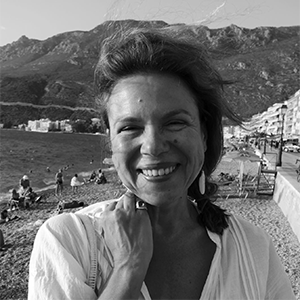
Riva Lava is Assistant Professor at the School of Architecture of the National Technical University of Athens with the subject Architectural Design and Heritage. She is a licensed architect and engineer (National Technical University of Athens / Cooper Union, New York) and holds a Ph.D. in architecture (Aristotle University of Thessaloniki).
She has lived and worked in Athens and New York City. She has received distinctions and awards in architectural competitions and has been consulting numerous city projects, combining contemporary living issues with heritage. Her research has a strong focus on moving populations within urban and traditional enclosures and contexts.
Dr Lava has taught and lectured in distinguished schools of architecture across Europe, the US and China.
She participated in EU heritage research programs for the preservation of Greek art and architecture (BYZEIS), edited the university textbook “Issues of Cultural Heritage” (2010), and participated at the “Architecture as Icon” project of the Princeton University.
She has published numerous articles on architecture and has produced a series of shows featuring urban aspects of Athens for Greek Public Television (ERT).
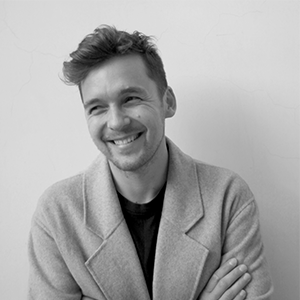
Adrian Krężlik, Architect, PhD student and researcher at the Faculty of Architecture of the University of Porto, where, within the regenerative framework, he investigates the impact of architecture on the environment. He graduated from the Technical University of Łódź (Poland), worked for Zaha Hadid Architects in London, and later for Fernando Romero and Rojkind Arquitectos in Mexico City. In 2014 he created Architektura Parametryczna, a Polish educational platform for digital competencies (parametric design, artificial intelligence, digital fabrication) for designers. In 2020 he co-founded Dosta Tec, a Porto-based firm that develops strategies for restorative renovation of Portuguese housing. In his practice, research and teaching he is interested in methods to regenerate the environment via design. He lectured in Barcelona, Cairo, Copenhagen, Helsinki and Warsaw, to list some. He is a Lecturer at SWPS University in Warsaw, was a Visiting Assistant Professor at Weißensee Kunsthochschule in Berlin.
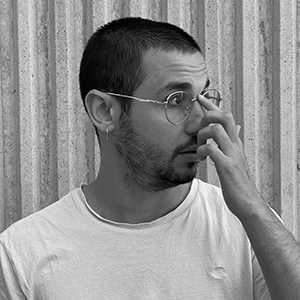
Juan Gómez Verdú was born in Valencia, on 21st July 1995, where he currently lives. In 2014, he started his degree in Architecture from the Polytechnic University of Valencia. In 2018, thanks to Erasmus scholarship, he went to the Hafencity Universität in Hamburg. By the fifth year, he started to become interested in educational spaces and their relation with the learning process itself. He is currently enrolled in a Master in Architecture at the Polytechnic University of Valencia with research about Higher Education and Architectural Educational spaces, formal and informal learning. He has submitted some works to architectural magazines, and worked for several years as a graphic and 3D design artist. Lately he has started working in a landscape and urbanism studio in Valencia.
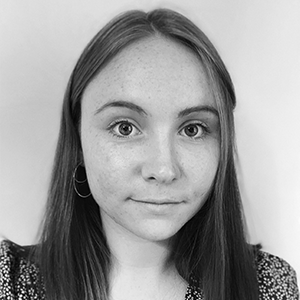
Maureen Certain, Student in PhD, she oriented herself during master degree towards urban planning and sustainable development after a year of exchange program at the College of Urban Planning of UIC Chicago. This experience have been decisive in her approach of the metropolises in the context of ecological transition Since 2020 she is engaged in a doctoral program articulated on a triptych of Water, Heritage and Territory in Jaipur co-directed by CEPT Ahmedabad.

Giorgia Verlicchi is 24 years old and she is attending the last year of the Master (single-cycle degree Course) in Architecture of the Department of Architecture – University of Bologna. Since she was a child she has always had an interest in this field, thanks also to her father’s work, who sometimes took her with him to see some building sites or, at her request, how cement was made. So, she carried on this interest, attending the Technical Institute for Surveyors in high school, and then continuing the studies with the current course. During her student’s career she did three internships and these work experiences have been very useful to enter mentally into the world of work and to understand the internal dynamics. In particular she realizes how much responsibility the figure of the architect has and how important it is to collaborate with other figures. Her university course has been very productive, and now that she has arrived at this point, she realized how much knowledge and skills she has acquired during these years.

Ivona Lovrić is a Bachelor student of architecture and urbanism at the University of Zagreb, Faculty of Architecture. From 2019, she is one of the editors from Zagreb of 303 (Tristotrojka) magazine, founded by students at Sarajevo Faculty of Architecture. In the summer of 2020, she participated at the EASA event (European Architecture Student Assembly) and was one of the organizers of Umbrella (EASA newspaper). Currently, she is an assistant student of Architectural Technology and Materials discipline.

Charis Tremetousiotis is a 23 years old, year 4 Architecture student at National Technical University of Athens (2017-present). Born in the island of Cyprus, an island of cultural antithesis that embraces outdoor living. He served in the mandatory army as a second lieutenant for a year (2016-17). He graduated with an Apolytirion of 19 10/12 and degrees in fine art, mathematics and physics. He speaks natively greek and fluent English.
He admires architecture for its ability to create feeling and cause. Over the past years, he attended workshops that emphasized on self construction and natural building materials such as adobe and wood. During summer he goes on-site to see first hand how architecture is constructed. He finds joy sketching furniture and other small scale objects as an important element of interior space. He is amazed by tradition and the way anonymous architecture removed clutter in a way that made every choice about necessity and not about choice.

Manuel Heitor is the current Portuguese Minister for Science, Technology and Higher Education, a role he has occupied since 2015. He is also a Research Fellow for Texas University, in Austin, and has been involved in the promotion of the European Network “step4EU, science, technology, education and policy for Europe”. Prior to this, he was Secretary of State for Science, Technology and Higher Education between 2005 and 2011, actively working towards increasing public and private financing for science and technology activities, as well as in the reform and modernization of higher education. He was a Visiting Professor at Harvard University between 2011 and 2012, and co-president of the Instituto Superior Técnico between 1993 and 1998, as well as being a Professor at the same institution.
Manuel Heitor has a Degree in Mechanical Engineering from the Instituto Superior Técnico of the Universidade Técnica de Lisboa. He has a doctorate in the same area from Imperial College, London, and a post-doctorate from University of California, in San Diego.